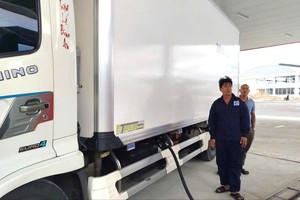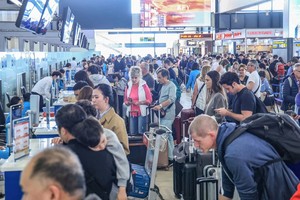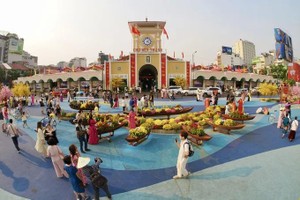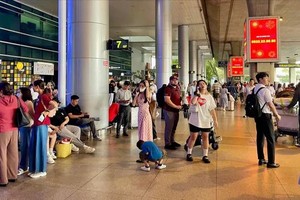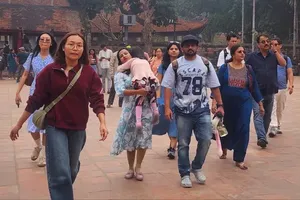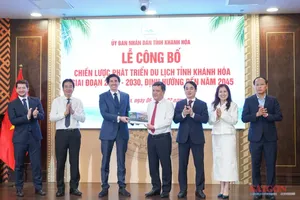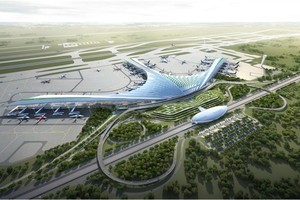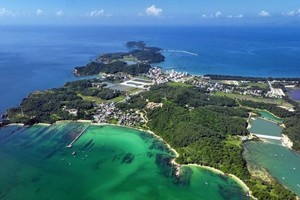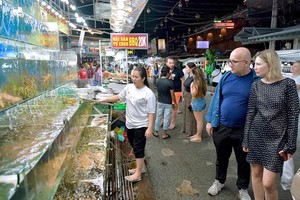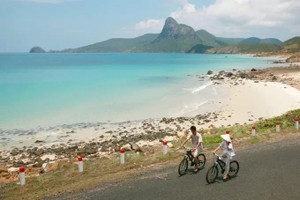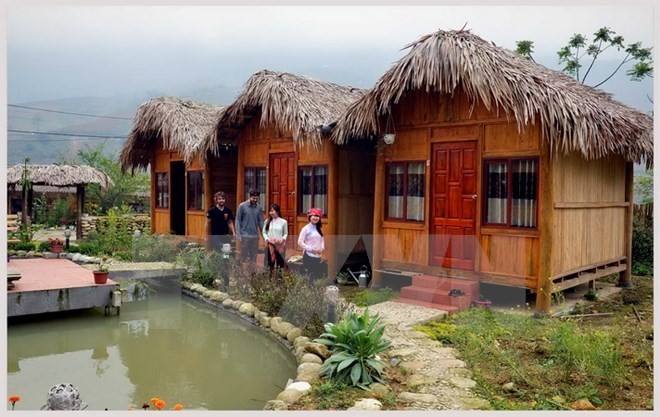
The PM assigned the Lao Cai provincial People’s Committee to coordinate with the Ministry of Culture, Sports and Tourism and relevant ministries and sectors to organise a ceremony to announce the decision.
They were also urged to promote tourism in Sa Pa and submit to the PM a proposal on suitable policies and mechanisms to develop Sa Pa in a sustainable manner.
Located 350km northwest of Hanoi capital city, Sa Pa is 1,600m high above sea level, with the average temperature of 15-18°C. The whole town is dominated by the Hoang Lien Son mountain range which is famous with the Indochina’s highest mountain of Fansipan at a height of 3,142 m above sea level.
Discovered in 1903 by the French, Sa Pa has many natural scenic sites such as Ham Rong Mountain, Thac Bac (Silver Waterfall), Cau May (Rattan Bridge), Bamboo Forest and Ta Phin Cave. The hill town is home to six main ethnic minority groups, including Kinh, Hmong, Dao, Tay, Day and Xa Pho with various traditional festivals and unique cultural practices, especially the Bac Ha market and Sa Pa love market.
According to statistics of the provincial Department of Culture, Sports and Tourism, Lao Cai welcomed more than 1.1 million tourists in the first quarter of 2017, including nearly 230,000 foreigners, a year-on-year rise of 56.6 percent.
It is striving to welcome more than 6 million tourists, and become a key tourism centre of the north western region by 2020.
The province hopes to welcome at least 3.1 million tourists in the National Tourism Year 2017.
They were also urged to promote tourism in Sa Pa and submit to the PM a proposal on suitable policies and mechanisms to develop Sa Pa in a sustainable manner.
Located 350km northwest of Hanoi capital city, Sa Pa is 1,600m high above sea level, with the average temperature of 15-18°C. The whole town is dominated by the Hoang Lien Son mountain range which is famous with the Indochina’s highest mountain of Fansipan at a height of 3,142 m above sea level.
Discovered in 1903 by the French, Sa Pa has many natural scenic sites such as Ham Rong Mountain, Thac Bac (Silver Waterfall), Cau May (Rattan Bridge), Bamboo Forest and Ta Phin Cave. The hill town is home to six main ethnic minority groups, including Kinh, Hmong, Dao, Tay, Day and Xa Pho with various traditional festivals and unique cultural practices, especially the Bac Ha market and Sa Pa love market.
According to statistics of the provincial Department of Culture, Sports and Tourism, Lao Cai welcomed more than 1.1 million tourists in the first quarter of 2017, including nearly 230,000 foreigners, a year-on-year rise of 56.6 percent.
It is striving to welcome more than 6 million tourists, and become a key tourism centre of the north western region by 2020.
The province hopes to welcome at least 3.1 million tourists in the National Tourism Year 2017.







